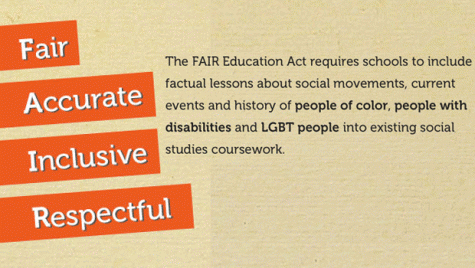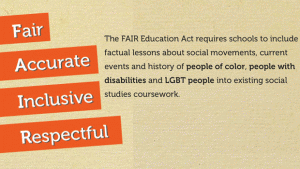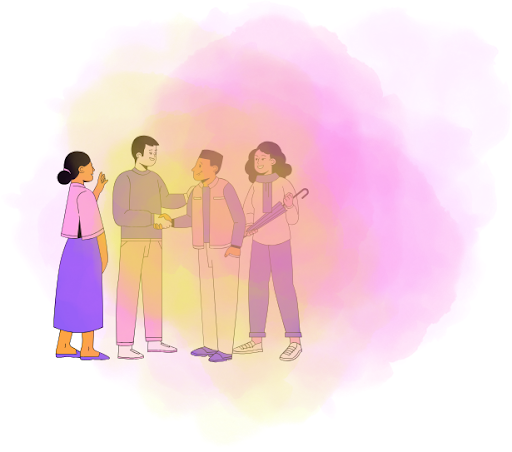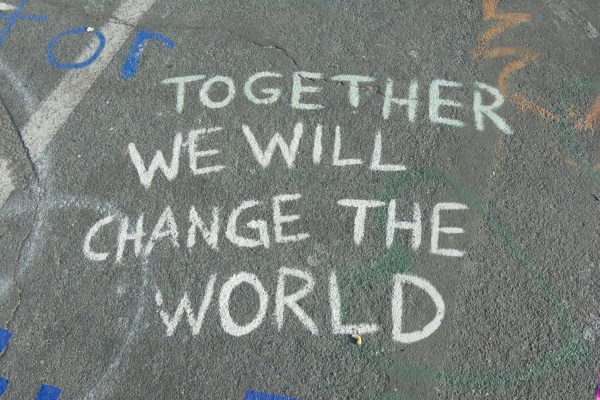Slacktivism: growing threat to advocacy
#Slacktivism or #makingadifference? Slacktivism — using the Internet as means to show support for a cause, requiring little effort or involvement — is trending, turning real world issues into means of self-promotion and undermining sincere advocacy. Through Snapchat stories, Instagram posts and Facebook updates, the true meaning behind a cause is washed away when it is posted online, even if that’s not the intent of the author.
When asked about why people post things online, Social Justice teacher Rebecca Uscian stated, “I think there can be effective forms of it. Sometimes just informing people inspires people to take the next step. However, I think that if you’re constantly sharing and never doing, it can be an issue.”
Even though the meaning behind an online cause might be authentic, often times it becomes a medium for bandwagoning to occur. When we treat something as important, is our reason for doing so because it was posted on social media? While our scrutiny may be genuine, in reality, the importance of a cause tends to increase when we see other people pay attention to it. In that sense, the most popular causes are the ones people more often advocate for.
Taylor Corrigan from Brand Driven Digital demonstrates how slacktivism spreads through fads, where issues quickly become popular through social media, and soon afterwards, support for the cause dies. This pattern is exacerbated as social media users campaign for several different issues without truly understanding the problem or making a tangible impact in finding a solution. “Online slacktivism is often as shallow as the participants’ knowledge on the movements themselves,” says Corrigan. And Amanda Jones, Harvard graduate and current journalist for the Huffington Post writes, “It seems to me that people are so eager to do as their social media friends do and jump on the latest activist bandwagon before researching and familiarizing themselves with the cause and what it is that they are doing,”
Furthermore, a study conducted in 2015 by Sociological Science showed that online activism on Facebook isn’t as effective as other in-person forms of advocacy. They found that “return rates for charities on Facebook are a tenth of those whose charities take traditional routes.”
Continuing on the findings, Corrigan writes, “One of the largest causes on Facebook, Save Darfur, has amassed over a million likes but has only received about $100,000 in donations. Over 98% of their online followers haven’t donated at all.”
So if it’s not effective, why do people turn to it?
Among the numerous reasons out there, the first is that social media initiates awareness. Jill Lee, sophomore at Dougherty Valley High School, states, “I think the first step to any sort of activism or advocacy starts with informing people about the issue. It puts it on their radar. Social media is an effective platform in that way to plant knowledge about an issue and have it reach a large following of people.”
So is it okay to share a cause before becoming familiar with it? Lee answers, “The information you spread doesn’t necessarily have to be deep when you first introduce an issue to people, because after all, you’re just introducing it to them… After that, you can take steps to further educate about a topic you’re passionate about.”
A study of 40 Dougherty students found that while only four people ranked the effectiveness of social media a ten out of ten, several said that the major impact of social media advocacy was raising awareness.
However, that’s just the start to this conversation. While social media advocacy is important, it’s also essential to realize that it isn’t enough. It is an excellent first step, but it will not make a real impact on its own. Of those who participated in the survey, 18 said that they had personally advocated for issues through social media, but when asked what the impact of the post was, one student wrote: “I think it brings awareness to those who see it, but the extent of further interaction or action is very limited. Perhaps sharing it again will bring more attention to an issue but more likely is that others do nothing more to advocate for the cause.”
We are living in an age where we’re starting to believe that online advocacy is enough, because it makes us feel like we’ve made a big difference in the world. That false belief is what is inevitably going to hurt us in the long term, because it reduces the amount we believe we have to do to invoke change. Jones agrees, writing: “Participating in social activism on Facebook does not do much more than help people construct a ‘socially aware’ image of themselves and give them the sense that they are actually making a difference.”
Dann Albright from MakeofUse, a company that focuses on Information Technology, states that “intentions and actions, however, can differ. Sixty-five percent of Americans in the same study said that they would be willing to make an online contribution to a cause they’re concerned about, but only 35 percent actually did. And 70 percent said they’re likely to learn about changes they can make in their daily lives, but only 25 percent reported doing so in the last year.”
In a way, slacktivism tricks people into thinking that they have done enough for a cause, or that they care enough for a cause to actually advocate for the cause further. It may inspire people to pursue a cause, but only for a short while, as demonstrated through these statistics.
In addition, the impact of social media advocacy ultimately comes down to who has the most influence over society, reinforcing a concept of political capital. When people like celebrities and politicians voice their opinions on certain issues, others follow as well, but not necessarily with the same intent, knowledge or passion as the original post. It overshadows the true meaning of the cause, turning it into a competition to boost one’s social standing.
Overall, advocacy is only meaningful when there is an impact to it. The good in online activism is only exhibited and fully realized when there are further steps taken to ensure that the cause is carried out. This false sense of gratification that is gained by posting on social media works against this better interest, however, and it is demolishing the true intent of advocacy.

Riya Bindlish joined the Tribune to express her writing and opinions. She really really like talking to people and sharing their stories! This will be Riya's third year writing for the Tribune. Sbe was the...




















